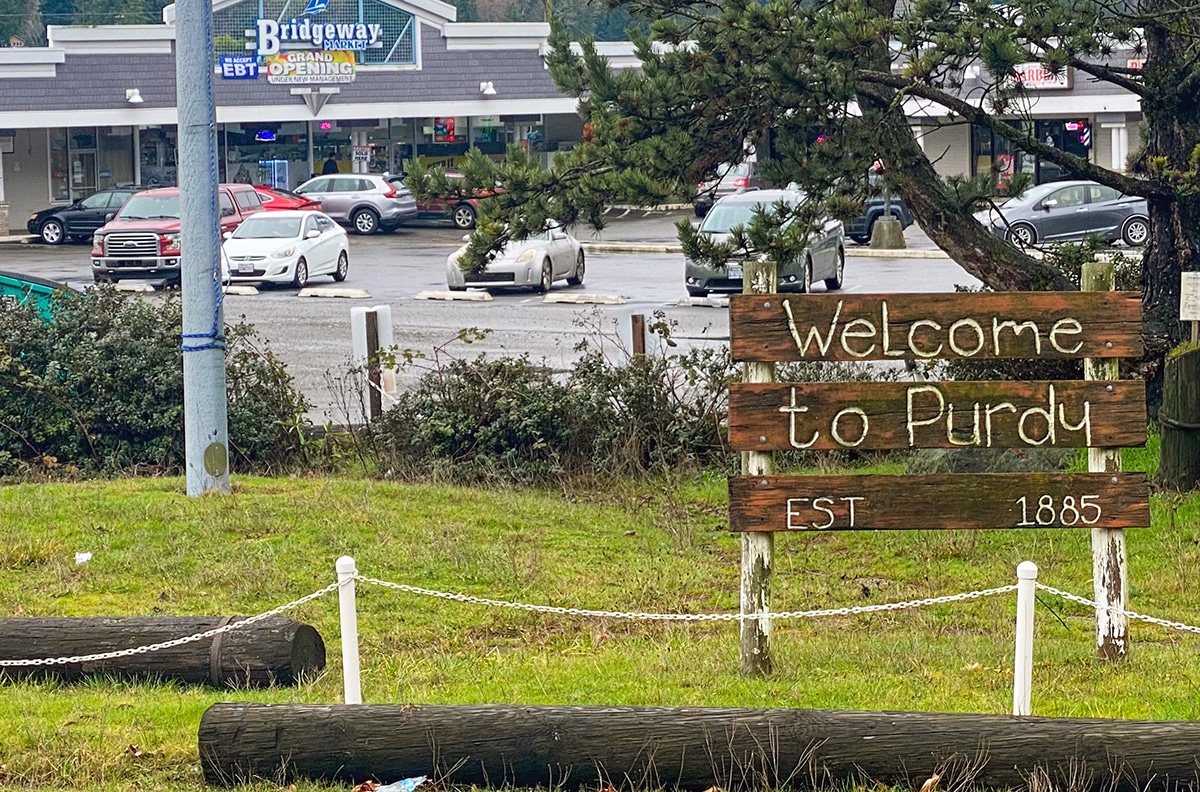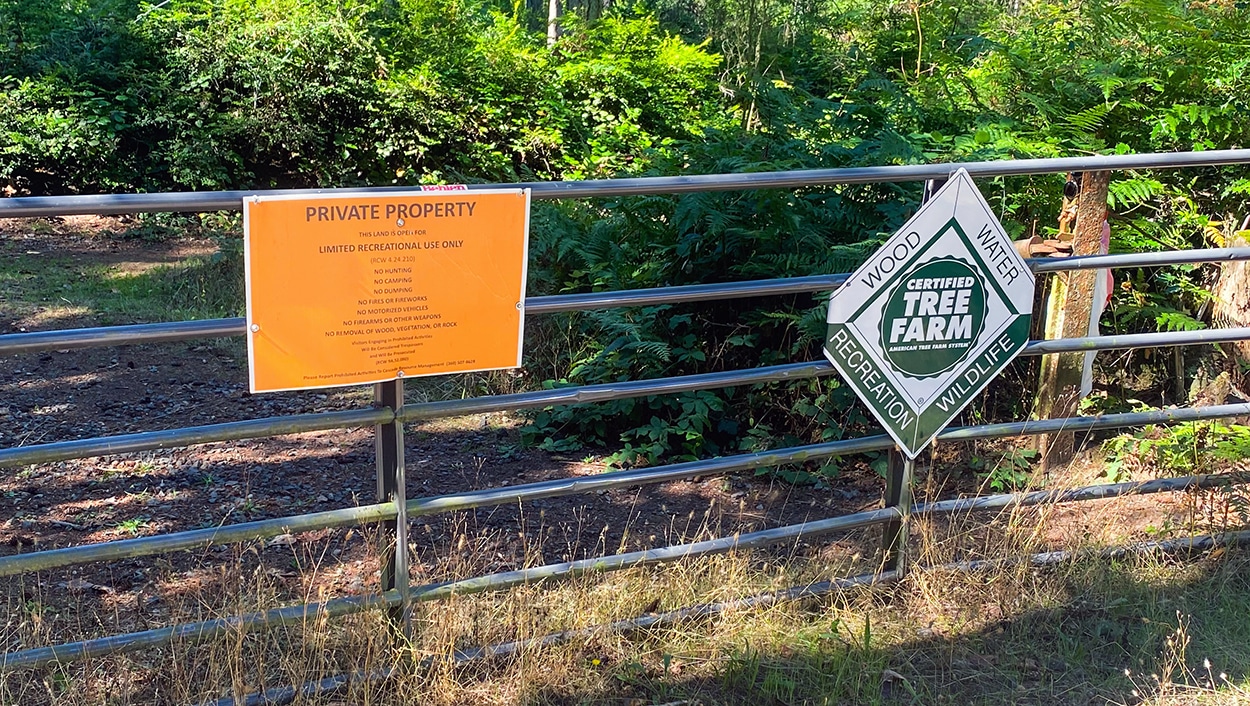Business Community
Updated Pierce County Comp Plan will affect Purdy, parks, zoning, STRs and more
Capping more than two years of intensive public process, the Pierce County Council last week passed an update to the Pierce County Comprehensive Plan.
Community Sponsor
Community stories are made possible in part by Peninsula Light Co, a proud sponsor of Gig Harbor Now.
The broad-scoped document directs growth and development in unincorporated areas of the county over the next 20 years.
The updated plan now awaits County Executive Bruce Dammeier’s signature. Under Washington’s Growth Management Act, counties must updates their comprehensive plans every 10 years. This one must be made final by the end of 2024.
Local impact
For the Gig Harbor Peninsula, the comp plan update accomplished some uncontroversial goals, such as changing the zoning for properties recently purchased by Peninsula School District. It also formalized an arrangement in which PenMet Parks and other local park districts will get a share of county park impact fees and real estate excise tax revenue collected in their areas.
Other measures in the document represent the county council’s final word on more contentious issues. For example, the update came down on the side of removing Purdy from the city’s urban growth area (UGA). This spells out a future for Purdy with less development, fewer new residents and a low likelihood of being annexed by Gig Harbor.
In another conclusion to an ongoing debate, the comprehensive plan update eliminated the rural density bonus, a zoning provision that has allowed developers to as much as double the number of dwellings they can build on rural-zoned parcels, provided they leave at least half the land in open space.
The update also introduced language that lays the groundwork for regulating short-term rental (STR) businesses. The update didn’t create specific restrictions on the popular AirBNB- and VRBO-promoted lodgings. But it did indicate that new rules are on the way. Such rules could address topics such as maximum STR occupancy or set a cap on dwellings that can be used in this fashion.
“Our hopes are that (county regulators) operate in good faith and establish guidelines that are reasonable. This is a property rights issue,” said Annie Jolie, an area STR operator and activist.
Slowing growth
Removal of Purdy from Gig Harbor’s UGA, and elimination of the rural density bonus are changes that will “significantly slow growth and limit development around Gig Harbor and the Key Peninsula,” wrote Robyn Denson, the county council member representing the Gig Harbor area, in a Facebook post announcing the comprehensive plan update’s passage.

The two measures address “our growing traffic congestion issues, concerns about draws on our aquifer, needs for additional law enforcement, septic systems [and] road improvements,” she wrote. “This is the financially responsible thing to do as the county (via taxpayers) simply cannot afford to provide significant services to all of our rural areas that more density would necessitate.”
Some property owners and developers have criticized the measures as short-sighted. They point out that more dense development brings in tax revenue that can fund public services. They also note that the rural density bonus can spur development layouts that cluster houses together on small areas within much larger properties, resulting in large contiguous areas left in their natural states.
Some landholders have accused the new plan of overreach on the rural density bonus issue, and at least one owner has threatened to strike back: California-based Gaines Investment Trust, which owns 1,000 acres of forestland in Crescent Valley, has said it will log and sell off its land near Gig Harbor piecemeal if the county limits its development options by eliminating the rural density bonus.

The 1,000 Acre Wood property in Crescent Valley. Photo by Ted Kenney
Short-term rentals
For short-term rental operators, the anxiety induced by the comp plan update stems, at least in part, from not knowing what restrictions are coming.
Past versions of the plan don’t mention STRs at all – a status quo that their owners preferred to keep. But as in other jurisdictions, concerns over the short-term lodgings’ potential effects on neighbors, on infrastructure and on the local housing supply have caused local government to move toward restrictions.
As a first step toward STR regulation, the county introduced language in the update recognizing these rentals “are important for homeowners and small property owners to earn supplemental income” while noting a need for “adequate protections to address impacts to nearby properties, the environment, and infrastructure such as ferries, parking, water supply, roadways and traffic, and on-site sewage disposal systems.”
Rental owners wary
The new text calls for the county to “consider restrictions on the number of housing units that may be used as short-term rentals to preserve residential housing supplies while also protecting areas that rely on tourism activity for economic opportunities.”
Rules based on the principles stated in the comprehensive plan update could materialize as early as 2025. Advocates such as Jolie and Carolyn Allen, an STR operator and co-founder of the Gig Harbor Short-Term Rental Alliance, say that unreasonable restrictions would include any that cap the number of guests staying at an STR while not limiting the number of occupants in a long-term rental home.
“Why would the rules be different for someone who rented a home for 31 nights versus 30? Wouldn’t that seem ridiculous?” Allen asked.
“Our desire is that the Pierce County Council will include STR owners on a citizen task force to study STRs in Pierce County,” she said.
New Peninsula School District property
For the Peninsula School District, the comp plan update was conveniently timed. On Nov. 22, the district closed on its purchase from Rush Companies of 20.42 acres in Purdy near Peninsula High School, Purdy Elementary and other PSD facilities.
Officials say they have no immediate plans for this real estate and plan to hold it for future needs. However, since the update was in process, the district took advantage of it by working with county officials to obtain an amendment that rezones the land to “Public Institution.” This allows the siting of public-owned facilities and institutions on the property.

Rush Companies owns 20.06 acres along 62nd Avenue near its intersection with 144th Street. Peninsula School District has a signed purchase-and-sale agreement for the property.
The district deferred purchase from Rush of an additional 4.89 acres south of Peninsula High School, in order to perform more due diligence on that property. If PSD follows through and buys the land, it will have to wait until mid-2026, when the county begins accepting comp plan amendments, to initiate rezoning.
Parks funding
In another comprehensive plan change implemented to benefit a local government, an amendment formalizes local park districts’ right to share park impact fees and real estate excise tax revenue that Pierce County collects within their service areas.
For PenMet Parks, such revenue-sharing cropped up as an issue in early 2024, when the county executive put the brakes on payment of $472,000 in impact fee and REET money that PenMet was expecting. It turned out that despite an earlier agreement between the county and the parks district to share the revenue, county code restricted the use of such money to spending on properties owned or managed by the county.
To allow the transfer, lawmakers broadened the code’s language to allow the county to share such funds with park districts. Successfully arranging the transfer of $472,000 “made it clear that it’s possible for Pierce County to share park impact fees” with local districts, but there still has been nothing in the law requiring the county to do this, Denson said.
In response, Denson sponsored an amendment – subsequently adopted as part of the updated comprehensive plan – committing the county to “distribute a percentage of park impact fee and real estate excise tax revenues collected within park district service areas to the Park District for development of capital projects that are available to all County residents.”
The amendment also instructs Pierce County to “seek opportunities to transfer parks located within potential annexation areas or located within park districts and consider providing financial incentives to the receiving jurisdiction such as short-term maintenance or stewardship funding.”
Pooling resources
Steve Nixon, a PenMet Parks commissioner, praised the amendment as a way the county and the park district can pool resources in support of their joint constituencies.
“The concept of Pierce County being able to share the funding that it collects for parks and rec, which includes the impact fees, regular taxes, real estate excise tax, etc. is huge for PenMet to deal with growth, as well as providing services locally to our constituents,” he said.
Awaiting executive’s signature
Following passage of the comprehensive plan update last week, county officials said they would take time to integrate final changes into the document before sending it to County Executive Bruce Dammeier.
As of Monday, Dec. 9, his office had not yet received the plan, according to Communications Director Libby Catalinich. Once received, the executive has 10 days in which to sign it, she said.

